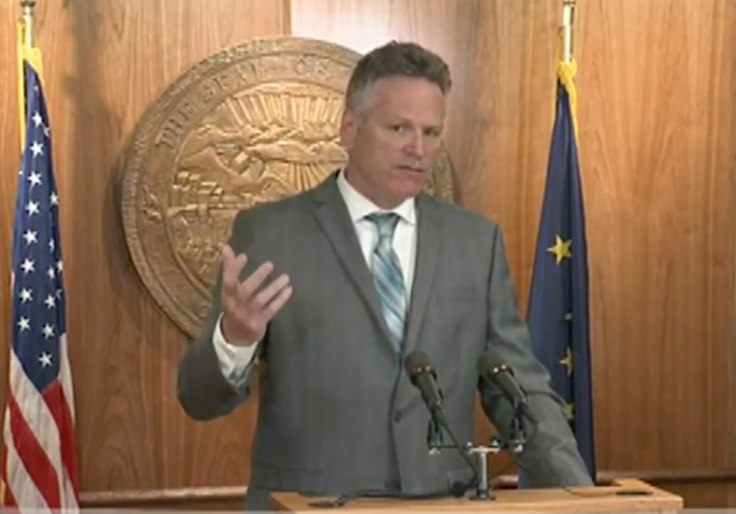Public sector unions in Alaska will no longer be able to automatically collect dues from workers after Republican governor Mike Dunleavy instituted the nation's first statewide "opt-in" system of unionization.
In 2018, the Supreme Court overturned decades' worth of legal precedent that allowed public-sector unions to collect mandatory dues or fees from government employees. The 5-4 ruling in Janus v. American Federation of State, County and Municipal Employees said that such a practice impedes on the First Amendment rights of workers by forcing them to financially support political speech. In response to the ruling, states around the country allowed employees to opt out of union membership. Gov. Dunleavy went a step further on Thursday, signing an executive order that requires employees to affirmatively opt in to union membership before agencies deduct dues from their salaries.
"As Governor of Alaska, I am legally obligated and compelled to ensure state employees' free speech rights are protected," Dunleavy said in a statement. "Today's announcement, which provides employees the necessary flexibility and freedom under the court's ruling, is about the State complying with the law."
Dunleavy's administration plans to roll out the new scheme in December when the old dues collection process is discontinued. The new plan will require workers to annually decide whether they want to enroll in their unions, with dues collected only from those who opt in.
"When the new system is in place, it is anticipated that State employees will be able to choose to be represented by a union ('opt-in') or not represented by a union ('opt-out') at any time," an FAQ read.
The executive order comes one month after Alaska attorney general Kevin Clarkson recommended the institution of an opt-in system in order to ensure that the state complied with Janus. When agencies stopped collecting fees from opted-out employees, unions threatened to sue the state. Clarkson filed a lawsuit on Sept. 16 asking the state superior court to confirm that agencies should stop deducting dues from paychecks "upon a direct request from an employee." State unions counter-sued, arguing that the policy violated collective bargaining agreements.
"The Supreme Court made it clear in Janus that public employees have the freedom to pay union dues or not," Clarkson said in a press release. "Because we want to make sure we are acting in compliance with the Constitution, we are asking the court to confirm the State's actions in halting dues deductions when directly requested by an employee."
Patrick Semmens, spokesman for the National Right to Work Legal Foundation, which successfully argued the Janus case, said the executive order was a victory for constitutional and workers' rights.
"Governments can never just assume that an individual has waived their constitutional rights, and the opt-in process set up by the State of Alaska ensures that the state only takes dues from workers who clearly acknowledge that they have a First Amendment right not to fund union activities but that they don't want to exercise it," he said. "It's time for other states to follow Alaska's example and proactively protect the First Amendment rights of public workers."
Labor leaders criticized the governor's decision as an "extreme attack on Alaska state employees."
"This Governor has made it clear that he has no respect for the commitment and effort of hard-working Alaskans in public service," Jake Metcalfe, executive director of the Alaska State Employees Association, said in a statement. "He sees our members as nothing more than an obstacle in his plans to dismantle the critical services Alaskans rely on every day."
A number of current and former government employees have launched class action lawsuits against state and local governments to recover back dues and damages from public sector agencies and unions. Jerry Hunter, former general counsel of the National Labor Relations Board and an attorney at Bryan Cave Leighton Paisner, said Dunleavy "made the right decision" by erring on the side of caution. He added that he was "not surprised" about organized labor's response to the policy.
"I think the action taken by the current governor, as a result of the attorney general's opinion, is in compliance with Janus because the Supreme Court clearly stated that the individuals have to consent to the payment of dues and the public employer has to have compelling evidence of that consent," Hunter told the Washington Free Beacon. "This could just be a delaying tactic where they are suing to delay the ultimate outcome of the current governor's decision. But I think Janus is very clear, clear as daylight."
